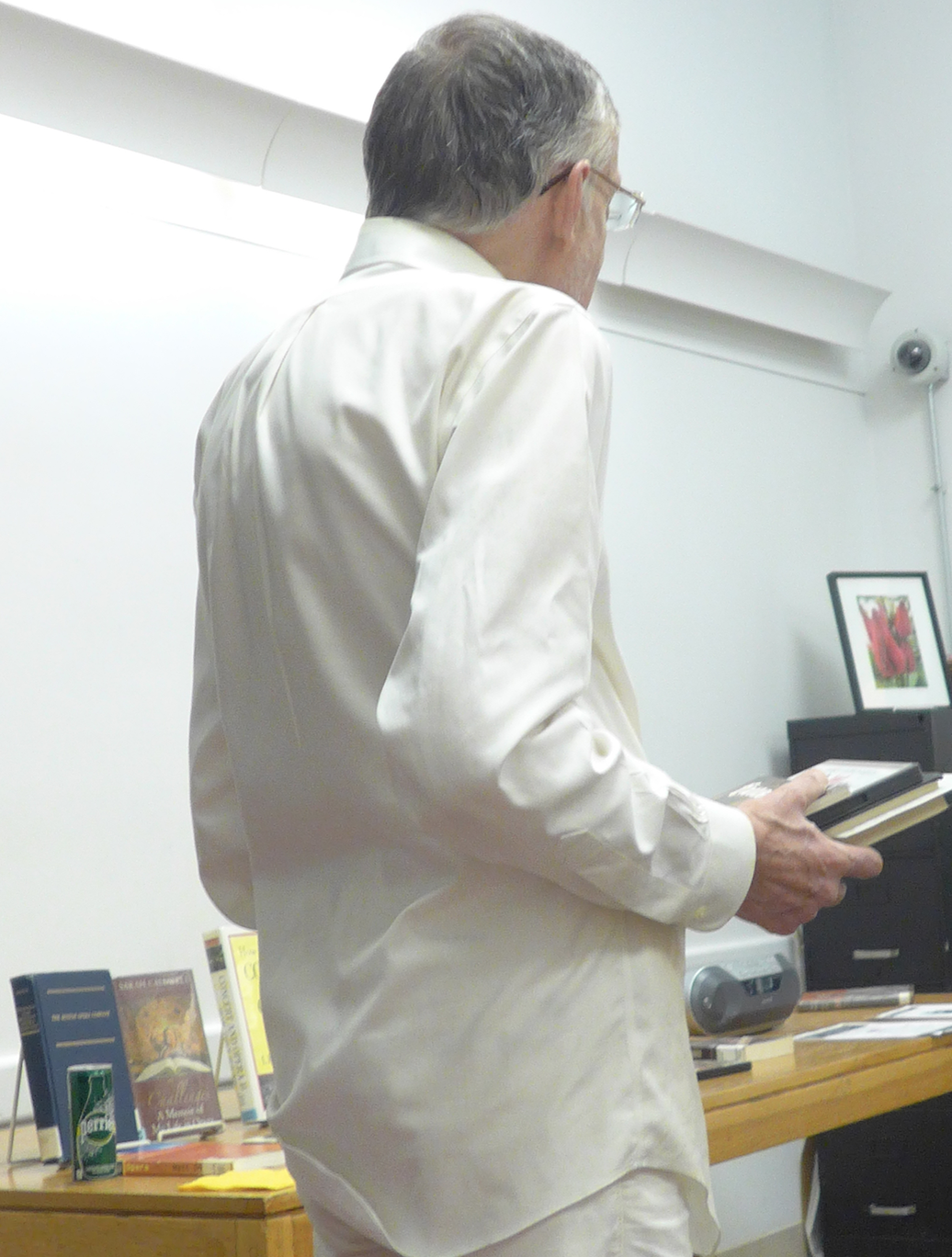Odyssey Opera Backer, Randolph Fuller, Delivers Another Passionate Talk at the South End Library about his Favorite Subject: Great Opera in Boston
Randolph Fuller, Odyssey Opera founder (with composer/musical director Gil Rose), ready to treat the audience to a talk about his favorite subject
South End resident Randolph Fuller, whose unflinching enthusiasm for opera in Boston was on full display in an October 9 talk, described the mission of the Odyssey Opera company he founded with conductor Gil Rose as “staging important but unheard masterpieces by famous composers,” or by others who are not so well known. ”There’s no Grand Opera’ House here In Boston,” said Fuller, a longtime financial backer of local opera, “so you can’t hear them live other than at Odyssey.” Fuller graciously replaced Gil Rose, who had been scheduled to speak, but was unable to due to an unexpected scheduling conflict.
19th-century French composer Charles Gounod
Rose and Fuller began the Odyssey Opera series in 2013, the 200th anniversary of Richard Wagner’s birth, with his opera Rienzi, inspired by the tale of rebellion by a 14th-century army officer against the nobility. Rose and Fuller like to have a theme for the season, such as was the case in 2016-17’s Wilde Opera Nights, when three of the five operas that season touched on the life and work of Oscar Wilde: Lowell Liebermann’s semi-staged The Picture of Doran Gray; Mario Castelnuovo-Tedesco’s sung The Importance of Being Earnest; and the Arthur Sullivan/W.S. Gilbert fully staged Patience; or Bunthorne’s Bride. Last year’s season, Trial by Fire, focused its five operas on the life and trials of Joan of Arc.
This year, Odyssey Opera features two works by Charles Gounod in what they call the Goun-Odyssey, on the composer’s 200th anniversary of his birth. For the well-reviewed October performance of The Queen of Sheba, months of detective work was required by Fuller and Rose to get the original score, including a search of the archives Library of Congress. “The last piece was found in a trunk in Italy,” Fuller reported.
An illustration of the final scene of Charles Gounod’s Faust, with the Devil, Faust and Gretchen (or Marguerite).
Gounod, who Fuller described as the greatest French composer of the 19th century, produced twelve operas, including what was perhaps the most popular ever written, Faust, the subject of Fuller’s library talk. “The Faust legend had been irresistible since the late Middle Ages and was reflected in all aspects of art,” Fuller said, including literature and the visual arts. However, the greatest impact of the Faust legend was in music and opera, as in the Franz Liszt symphony, Faust; Wagner’s Faust Overture; Robert Schumann’s Scenes from Faust, and in the operas of, among others, Hector Berlioz The Damnation of Faust and Gounod’s Faust. At the library, Fuller played the Gounod orchestral prelude of Faust for the audience, pointing out the unresolved harmonies and not-quite-clear melodies at the beginning of the piece, resolving themselves into Gounod’s most famous melody at the end when sung by the trio representing Faust, the Devil and Gretchen.
On November 9 and 11, Gounod’s comedic opera will be staged at the Huntington Theatre, based on Moliere’s The Doctor in Spite of Himself.



